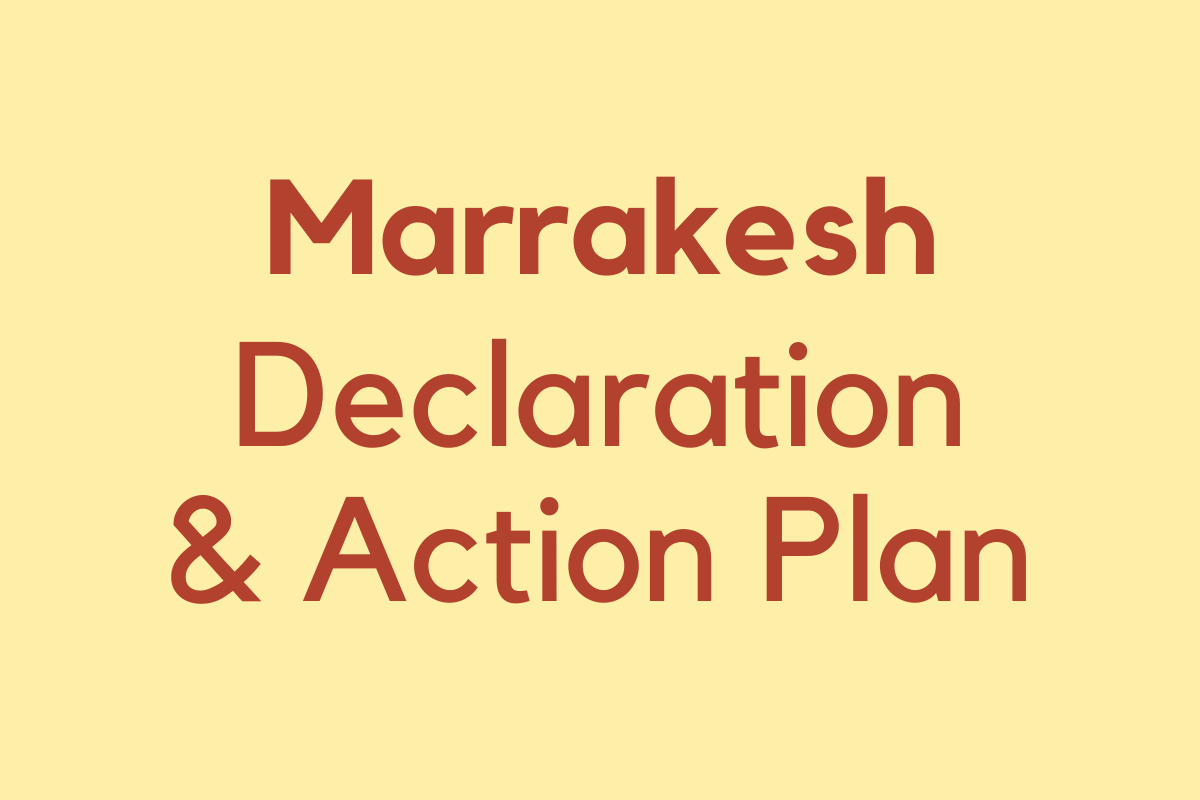Rabat Process Senior Officials’ Meeting (SOM) 24th -25th October 2017 in Accra, Ghana.
In view of the Fifth Euro-African Ministerial Conference on Migration and Development, the Rabat Process convened a Senior Officials’ Meeting (SOM) in Accra to validate the new draft multi-annual cooperation programme 2018-2020, which will subsequently be adopted at ministerial level in 2018. The SOM, which was hosted by the Republic of Ghana and Chaired by the Kingdom of Belgium, marked a milestone in the consultation process that was launched earlier this year to support the development of the new strategic framework, which will replace the Rome Programme in 2018.
The main objective of the two-day meeting was to discuss and approve the drafts of the Political Declaration and Action Plan that make up the new multi-annual cooperation programme. As Ambassador Michel Lastschenko, Special Envoy Migration & Asylum and representative of the Kingdom of Belgium, recalled during the opening ceremony,: “the texts respond to the same objectives as the Valletta Action Plan, and fall within the same willingness to better understand the root causes of migration, to better ensure the protection of migrants and asylum seekers, to promote mobility and legal migration, including measures of return, readmission and reintegration, and to prevent irregular migration, migrant smuggling and human trafficking and to combat these phenomena.”
In this respect, His Excellency Mr. William Hanna, Ambassador of the European Union to Ghana, stated that such challenges could:
“(...) only be addressed effectively in cooperation with the countries of origin, transit and destination in the spirit of partnership, shared responsibility and solidarity. These have been the founding principles of the Rabat Process (...).”
He added that: “It requires a carefully designed, balanced and sustainable policy response (and) the involvement of all stakeholders in the process, including states, civil society, the media, local authorities and the private sector, as well as diaspora, migrants and their families.”
The speakers of the opening ceremony also reminded participants of the human dimension of migration and to “(...) never forget that - despite national responsibilities - the security of our States, of our borders, may never prevail over the safety and dignity of migrants, whoever they may be”, as Mr Lastschenko stated, and Mr Hanna pointed out in his statement:
“The question is not how migration can be “stopped”. The question is how it can be better managed.”
In addition to representatives of partner countries and international organisations, two civil society organisations (the International Catholic Migration Commission and the West African Observatory on Migrations) attended the SOM as observers. Their invitation is a noteworthy development since, previously, civil society had only been invited to attend technical and not high-level or political meetings of the Rabat Process,
While the agenda of the first day focused mainly on examining the draft Political Declaration, the second day was entirely dedicated to discussing the draft Action Plan and, in particular, its implementation and the added value of the Rabat Process as a regional platform for exchange.
Five parallel working groups allowed the participants to look in detail into all of the issues at stake. Each group focused on one of the five domains of the 2015 Joint Valletta Action Plan, which will also be reflected in the future Rabat Process Action Plan:
- Development benefits of migration and addressing root causes of irregular migration and forced displacement;
- Legal migration and mobility;
- Protection and asylum;
- Preventing and combating irregular migration, migrant smuggling and human trafficking;
- Return, readmission and reintegration.
In each working group, an African and a European partner country were invited to share a case study or success story; this was followed by in-depth discussions.
The new multi-annual cooperation programme will take into account new realities of migration challenges and reflect the Rabat Process’ evolving role as a regional migration dialogue and its responsibility for monitoring the implementation of the Joint Valletta Action Plan. To this end, and given the short implementation time-frame, the future multi-annual cooperation programme will pay particularly attention to setting realistic, achievable targets that add value to the existing intergovernmental framework, and are in line with the Rabat Process’ specific features as a Euro-African forum for balanced dialogue and cooperation.
The meeting ended with the approval of the draft Political Declaration and Action Plan, ready for formal adoption at the upcoming Fifth Ministerial Conference in mid-2018.
Access the meeting documents below:
Presentations:
-
Rabat Process Secretariat: Activities of the Secretariat 2015-2017 (EN)
-
Belgium: Drafting Process and Next Steps (EN)
-
FedAsil: How to facilitate a sustainable return? Belgium's perspective. (EN)
-
MeetAfrica: Le Programme et son Avancement (FR)






